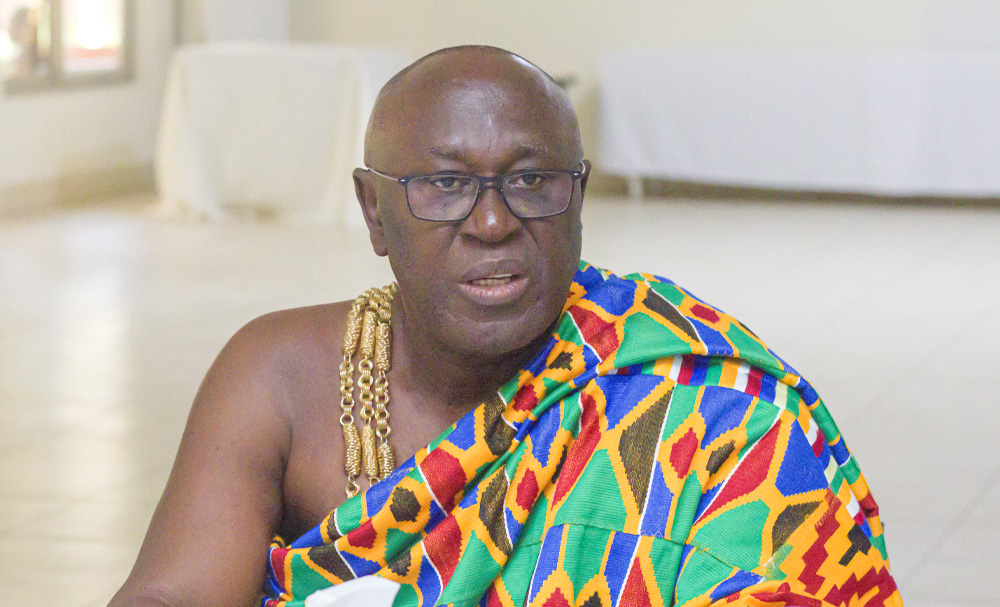Inside Winneba Trauma Specialist Hospital: Health care, patient safety - Graphic Online
Rev. William Kwabena Opoku Opinion 3 minutes read
In Ghana, regulatory frameworks guide healthcare practices to protect patients and ensure accountability.
However, challenges arise when compliance falls short, as seen in the case at the Winneba Trauma and Specialist Hospital in the Central Region, which became a national discussion not long ago.
This article examines the implications of this event and offers insights into improving healthcare regulation and compliance, incorporating a comparative perspective with the healthcare law of the United States of America.
The incident at the Trauma and Specialist Hospital involved a patient who was allegedly abandoned on the roadside following discharge.
Such actions represent a severe lapse in patient safety and professional ethics.
This breach erodes public trust in healthcare institutions and highlights systemic weaknesses in adhering to established regulations.
Ghana’s healthcare system operates under key legal frameworks, including:
• The Health Professions Regulatory Bodies Act, 2013 (Act 857): Governs licensing and practice to ensure professional conduct.
• The Public Health Act, 2012 (Act 851 ): Establishes safety protocols to protect patient rights and welfare.
• The National Health Insurance Act (Act 852): Promotes equitable access to quality healthcare.
Despite these regulations, incidents like this point to gaps in enforcement and compliance, exacerbated by systemic challenges such as resource constraints, training deficits and weak accountability.
In contrast, during my internship as a Patient Safety Officer at Metropolitan Health Services in Fairfax Hospital in Virginia, the US law provides robust frameworks to safeguard patient rights, particularly in emergency care and discharge protocols:
• Emergency Medical Treatment and Labour Act (EMTALA): This law requires hospitals to provide medical screening and stabilising treatment for anyone arriving at the emergency department, regardless of financial capacity or legal status. It emphasises non-discrimination and access to emergency care.
• Discharge Planning Regulations (42 CFR 482.43): Mandate safe, patient-centred discharge planning to ensure continuity of care. Hospitals must include patients and caregivers in planning and assessing post-discharge needs to avoid preventable harm or readmission.
These laws illustrate how transparent enforcement and accountability can reduce the likelihood of incidents like the one in Winneba.
The case at the Winneba hospital highlights the systemic issues hindering compliance, such as:
i. Inadequate resources: Chronic staff shortages and financial constraints limit effective care.
ii. Lack of training: Professionals may be unaware of discharge protocols or ethical obligations.
iii. Weak oversight: Ineffective monitoring and enforcement of regulations allow violations to persist.
Addressing these challenges is critical for improving patient safety and upholding professional ethics.
To bridge these gaps and enhance compliance, the following actions are recommended:
• Strengthen Enforcement: Implement regular audits and impose stricter penalties for non-compliance.
• Enhance professional development: Provide continuous education on patient-centred care, ethical standards and discharge protocols.
• Empower patients: Educate patients on their rights and establish accessible reporting mechanisms for malpractice.
• Adopt technological solutions: Use electronic health records and monitoring systems to streamline compliance and oversight.
The incident at the Winneba Trauma and Specialist Hospital is a critical reminder of the importance of regulation and compliance in healthcare.
While Ghana has made strides in developing regulatory frameworks, consistent enforcement and systemic improvements are essential to ensuring safe and dignified care for all patients.
Ghana can strengthen its healthcare system and rebuild public trust by learning from global best practices, such as those in the USA.
The writer is a patient advocate.









